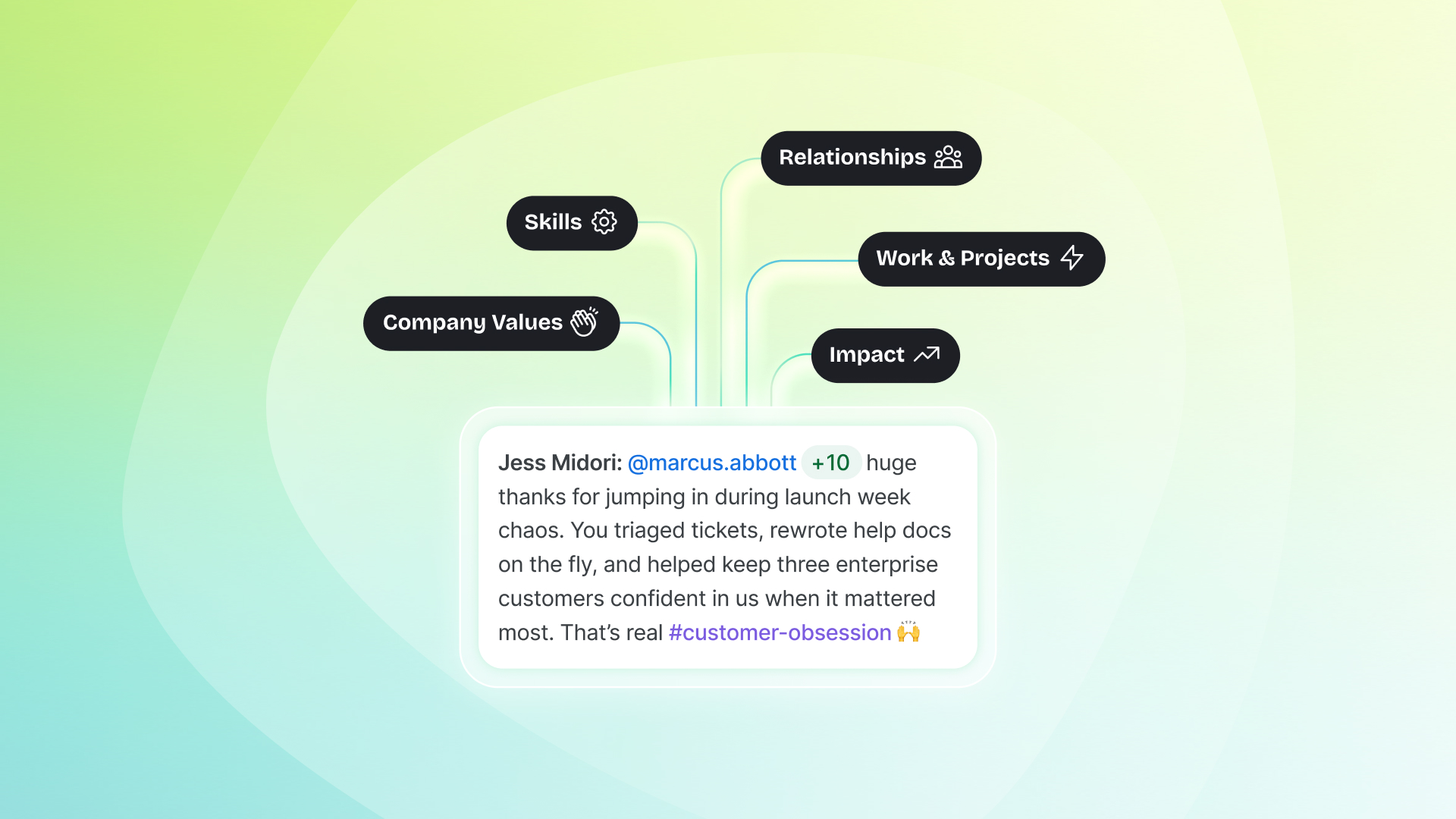Red Flags of a Poor Work-Life Balance and How to Get Things Back on Track

The general consensus is that being engaged with work will reduce burnout and anxiety. After all, actively disengaged employees are 2.6 times more likely to often feel anxious at work compared to highly engaged employees.
Unfortunately, taking on too much at work and refusing to disconnect comes at a cost—less sleep, neglected friends, and many other negative consequences. Today, we’re going to take a look at some of the workaholic red flags and how to find balance.
Red flags
Sleep deprivation
The average adult should get between seven and nine hours of sleep every night. Take note of the “every night” part. Staying up for two days at a time then hibernating for 12 hours isn’t healthy since our circadian rhythm is hardwired to function on 24-hour cycles.
One particular immediate effect of sleep deprivation is a weakened immune system that could leave you vulnerable to various viruses. In the long term, sleep deprivation can drastically increase your odds of heart failure, stroke, and diabetes.
If you feel that your sleep deprivation is partially or wholly caused by insomnia then avoid taking afternoon naps during your lunch break as, while these are a good way to get some more snooze time in, they may make it harder to fall asleep at night.
Reducing screen time before bed can also help stave off sleep deprivation. The blue light from your device is only one part of the problem. Even if you turn night mode on, your mind will still be too stimulated from social media to fall asleep.
Lack of exercise
One of the first things that people sacrifice in favor of work is exercise. This is because going to the gym isn’t really appealing to most people in the first place, so if they can get out of it with deadline excuses, they’ll likely play that card.
However, exercise is essential to staying healthy—both physically and mentally. While exercise is often seen as a distraction from work, it can actually help you stay productive and avoid burnout by improving your mood.
If you work a full-time job and don’t have enough time throughout the week to go to your gym then try to get some workouts in while you’re in the office. Squats and pushups can be done anywhere. Desks and chairs can also be used for dips.
Many company wellness programs will even reimburse your fitness costs which can be a great way to stay healthy without sacrificing the wellbeing of your wallet. Simpler options include talking short walks every now and then.
How engaged employees are can also impact how work affects their physical health. Studies show that 62% of highly engaged workers find that work actually affects their health in a positive manner. In contrast, only 22% of actively disengaged employees said the same.
You take work with you
Being a workaholic while at the office is bad enough since you won’t bother to eat, drink water, or go to the bathroom all throughout that eight-hour shift. However, things get far worse when you start taking work everywhere you go.
We’re all familiar with the image of someone who keeps checking his text messages and emails while out with friends or on a date with their significant other. It’s important to give yourself time away from work if you hope to maintain a good work-life balance.
Upon leaving the office, set apps to “Do Not Disturb” to ensure that push notifications don’t suck you back into the world of deadlines and spreadsheets while you’re taking time off. Enjoy the moments you have to yourself and resist the urge to check your emails at all costs.
Dead hobbies
Hobbies may seem like a waste of time to some people, but they’re actually a great way to keep your work-life balance in check since they ensure that you’re always doing something you love when not in the office.
It’s even better if your hobbies help you get a workout every now and again. Hobbies like tennis are a fun way to exercise on the regular. They’re also a social activity, giving you that extra mood boost to get you through the week.
If you find yourself making drastic cuts to the amount of time you spend on hobbies or even eliminating them entirely just to focus more on work then that could be a sign that your work-life balance is degrading.
Impatience
We’ll be the first to admit that some people are impatient by nature. However, if you’re normally a serene being but find yourself snapping at friends or family recently then this may be a sign that you’re working too hard.
Those with a poor or nonexistent work-life balance tend to deal with increased stress and disharmony at home than those with better balance. If fits of irritability or anxiety occur frequently at the expense of patience, take measures to address it.
One way to extend your patience (in addition to working less) is to reflect through keeping a daily gratitude journal. Write about all the things you are grateful upon waking up and before bed. This can help you focus on the positives of life instead of the work-related worries that are bothering you.
Struggling relationships
Whether it’s friends or a romantic partner, close relationships can really be strained when people fully invest themselves in work. According to the Dunbar number, you can only have five close relationships at a time, and that’s assuming you have a healthy work-life balance.
When work takes priority over those relationships, the number steeply declines until you find yourself struggling to live up to commitments with even just one or two people. Fortunately, the remedy can be as simple as actually making time for those in your inner circle.
Live up to your promises, don’t find excuses to evade events that you’ve already agreed to come to—regardless of what type of gathering it is. Whether it’s an intimate get together or a large wedding, don’t discount the importance of social events.
Messy lifestyle
If your home, office desk, and/or car looks like a jungle due to the cluttered mess that you’ve left then that’s a very clear indicator of poor work-life balance. This is actually a vicious cycle since the overworking causes the mess, but the mess then leads to burnout making you work slower. You’ll also find your mood gets gradually worse when you don’t take the time to maintain your environment. After all, how can you even start to take care of projects if you don’t first take care of your surroundings?
When you work slower due to the mess, you’ll fall behind on deadlines and thus work even harder to catch back up on your schedule. Take a few minutes to tidy things up once every couple of days.
You might feel like you’re expending time when you clear out the receipts on your desk or throw the clothes into the washer instead of letting them build up in your car, but it will be a worthwhile investment in the long run since you’ll be in an efficient mindset that gets work done quicker.
A great way to get into the habit of keeping things neat is by employing the two-minute rule. There are a lot of nuances to familiarize yourself with but, in a nutshell, you should do anything that takes two minutes or less right now.
Perfectionism
First of all, perfectionism isn’t all bad. It’s one of those double-edged swords that can either be amazingly useful or incredibly burdensome depending on how you wield it. Striving for excellence and quality in your work is a surefire way to climb the ranks.
On the other hand, perfectionism left unchecked can drive you towards unhealthy habits such as staying up late to ensure that your project is the best it can be before you submit it. While it’s important to make your best effort, don’t get caught up on perfection—there’s no such thing.
Setting personal deadlines can help perfectionists manage their time better since they’ll have a tangible time at which they need to call their submission good enough and move onto the next task. Without strict cutoff times, they’ll be eternally glued to their office, nitpicking perpetually.
Check out The Pursuit of Perfect: How to Stop Chasing Perfection and Start Living a Richer, Happier Life to learn more about how to stay productive as a perfectionist instead of getting caught up in small details.
Conclusion
As you can see, maintaining a good work-life balance can be relatively simple if you keep a lookout for the red flags of overworking. Catching these things early will allow you to nip problems at the bud.
It’s important to note that achieving a healthy balance will be much easier if you bring your concerns to team leadership and open up to family or friends that you trust. You don’t have to do this alone, and accountability can actually help you stick to your commitments.
If you found the information in this article helpful and/or have a friend who’s working themselves too hard then be sure to pass the link along. That’s all for now and happy balancing!







